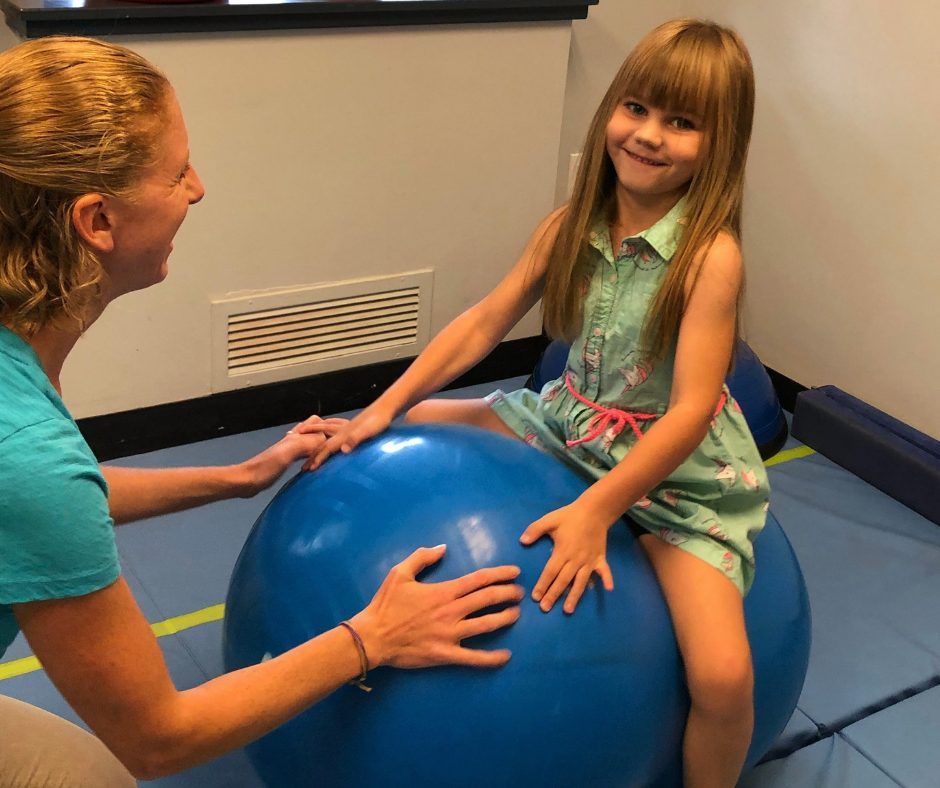Occupational Therapy
Occupational therapy helps people of all ages achieve independence with daily life activities.
At Laughlin, occupational therapists use fun, therapeutic activities to improve your child’s independence in their daily occupations. We work with children and adolescents from 3-18 years old. Our goal is to develop the underlying skills your child needs for success every day, from getting dressed to building with toys, playing with friends, and completing school work. Developmental skills targeted in occupational therapy may include:
- Fine motor strength and coordination
- Visual perception and visual motor skills
- Gross motor skills- strength, balance, postural control, body awareness
- Self-care skills- dressing, bathing, toileting, grooming (i.e. toothbrushing, face washing, hair washing, hair brushing, etc.)
- Feeding- oral motor, chewing, picky eating, self-feeding, texture sensitivities
- Organizational skills and attention
- Sensory processing and regulation
Occupational therapy is individualized to meet each child’s needs. We encourage continued practice of the skills at home and in the community to reinforce and facilitate independence.
Scheduling an Evaluation
Parents should consider an occupational therapy evaluation if their child is not performing at an age appropriate level or demonstrates any of the following:
- Poor coordination or balance; clumsiness
- Seems to have weak hands and/or gets tired easily while doing fine motor tasks
- Difficulty holding a pencil (too tight, poor grasp, fatigue, pain, changes hands)
- Difficulty with handwriting, coloring, drawing or copying
- Difficulty with self-care skills: for example, tooth brushing, dressing and undressing, manipulating fasteners, other grooming activities
- Decreased visual skills, including visual perception and ocular motor skills
- Poor eye hand coordination
- Impaired bilateral coordination: for example, lacing, scissor skills, jumping jacks
- Difficulties with feeding- picky eater, sensitive to food textures, unable to use silverware appropriately
- Extreme avoidance or seeking of certain sensory input
- Excessive risk taking
- Decreased attention, especially to table tasks, or avoidance of trying new activities
If you are unsure if your child would benefit from an Occupational Therapy Evaluation, we offer in-house screenings. A 15-minute screening can help identify red flags and determine a need for a full evaluation.

